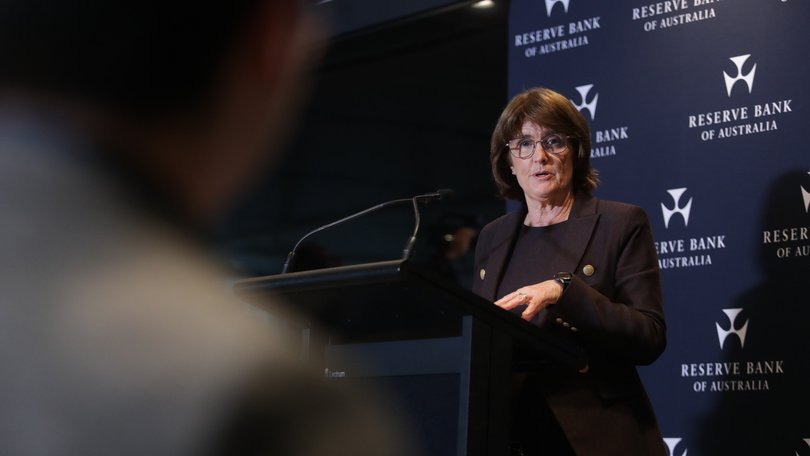RBA interest rates: Michele Bullock brushes off modest jobless jump in June
Michele Bullock has knocked back jitters about last month’s unemployment rise amid pressure on her Reserve Bank to drop interest rates.

Michele Bullock has knocked back jitters about last month’s unemployment rise amid pressure on her Reserve Bank to drop interest rates.
All eyes will be on the signals ahead of the RBA’s August meeting as borrowers hope for a third interest rate cut.
The RBA board held the cash rate steady on July 8 despite a queue of analysts tipping relief. Those calls grew louder after a modest lift in the jobless rate from 4.1 per cent to 4.3 per cent in data released just days later.
Sign up to The Nightly's newsletters.
Get the first look at the digital newspaper, curated daily stories and breaking headlines delivered to your inbox.
By continuing you agree to our Terms and Privacy Policy.Financial markets have bet heavily on a move at the RBA board meeting on 12 August.
Yet Ms Bullock remains steadfast, telling an event in Sydney on Thursday that the jobs market had “eased only gradually” since 2022, and the unemployment rate remained low.
“Some of the coverage of the latest data suggested this was a shock, but the outcome for the June quarter was in line with the forecast we released in May,” Ms Bullock told an Anika Foundation lunch.
The RBA had anticipated the market would soften a little to a more balanced level that would reduce inflation pressure. The job vacancy rate has been stable even as unemployment picked up.
Data was not pointing towards “further significant increases” in the jobless rate in the near future, Ms Bullock said. Minutes from the July meeting show the central bank is cautious that inflation will not slow as fast as hoped, however.
She broadly painted a picture of an employment market that has remained strong — with the percentage of the population in work close to record highs — even as inflation dropped dramatically.
“The fact that unemployment has remained low and employment growth has remained strong is remarkable — and very welcome,” she said.
“And it is striking that the increase in the unemployment rate has been small compared with the large decline in inflation.”
The RBA has copped plenty of blows from commentators accusing the board of being disinterested in its impact on jobs — including an accusation the decision to hold rates was “nonsensical” and “cruel”.
Ms Bullock hit back and confirmed that a strong labour market remained important for the central bank, adding that low inflation was crucial for job creation.
“Losing a job can be one of the most stressful events in someone’s life, and it can have far-reaching implications for families and communities,” she said.
But she admitted there were challenging shifts in the jobs market, with reductions in hours worked and fewer people switching jobs.
“These shifts aren’t without their challenges, but they all tend to be less disruptive than outright job losses,” she said.
“I should note that the RBA can’t wave a magic wand and control how adjustments in the labour market play out. Interest rates are too blunt an instrument for that.”
